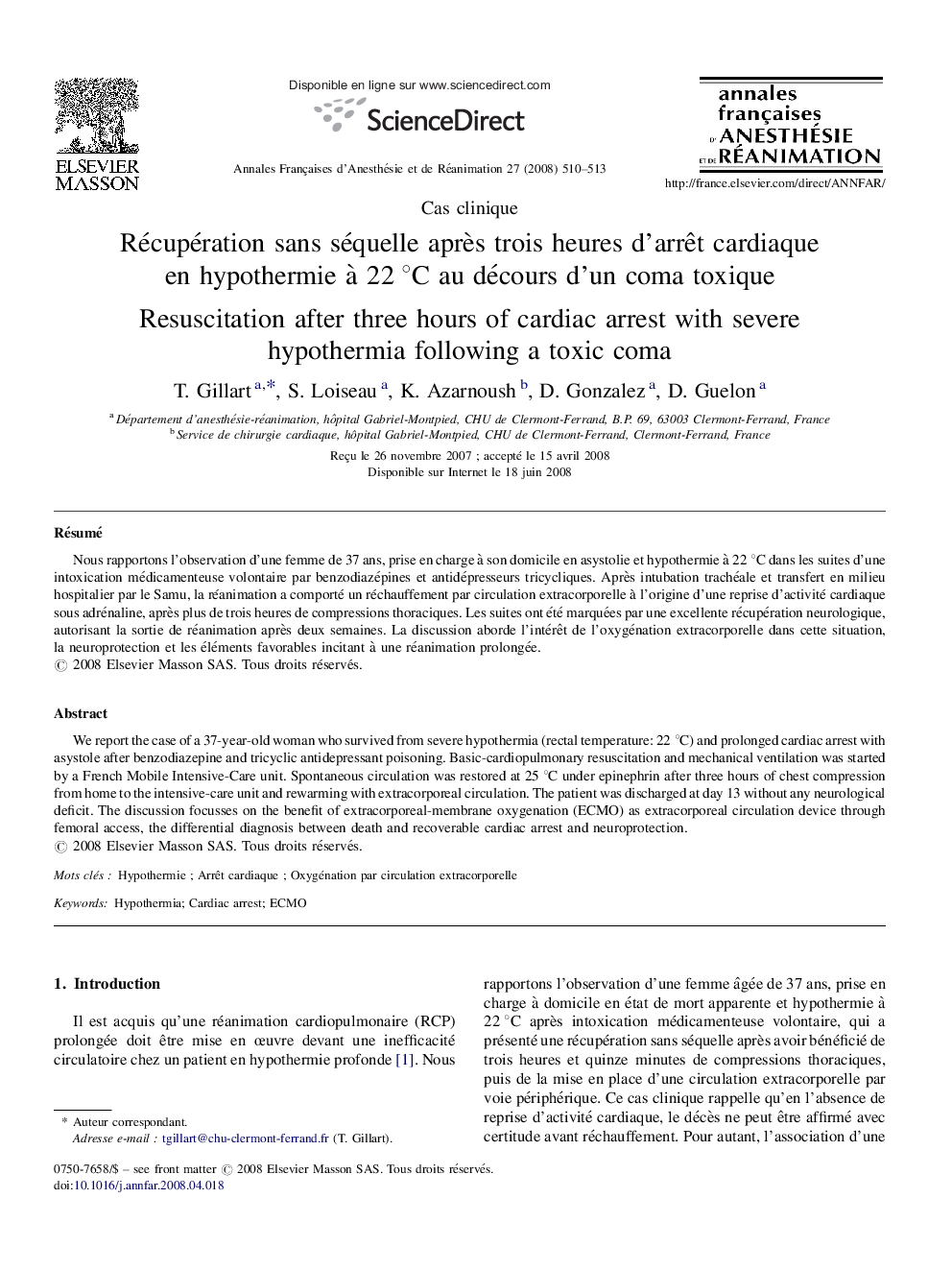| Article ID | Journal | Published Year | Pages | File Type |
|---|---|---|---|---|
| 2747563 | Annales Françaises d'Anesthésie et de Réanimation | 2008 | 4 Pages |
RésuméNous rapportons l’observation d’une femme de 37 ans, prise en charge à son domicile en asystolie et hypothermie à 22 °C dans les suites d’une intoxication médicamenteuse volontaire par benzodiazépines et antidépresseurs tricycliques. Après intubation trachéale et transfert en milieu hospitalier par le Samu, la réanimation a comporté un réchauffement par circulation extracorporelle à l’origine d’une reprise d’activité cardiaque sous adrénaline, après plus de trois heures de compressions thoraciques. Les suites ont été marquées par une excellente récupération neurologique, autorisant la sortie de réanimation après deux semaines. La discussion aborde l’intérêt de l’oxygénation extracorporelle dans cette situation, la neuroprotection et les éléments favorables incitant à une réanimation prolongée.
We report the case of a 37-year-old woman who survived from severe hypothermia (rectal temperature: 22 °C) and prolonged cardiac arrest with asystole after benzodiazepine and tricyclic antidepressant poisoning. Basic-cardiopulmonary resuscitation and mechanical ventilation was started by a French Mobile Intensive-Care unit. Spontaneous circulation was restored at 25 °C under epinephrin after three hours of chest compression from home to the intensive-care unit and rewarming with extracorporeal circulation. The patient was discharged at day 13 without any neurological deficit. The discussion focusses on the benefit of extracorporeal-membrane oxygenation (ECMO) as extracorporeal circulation device through femoral access, the differential diagnosis between death and recoverable cardiac arrest and neuroprotection.
